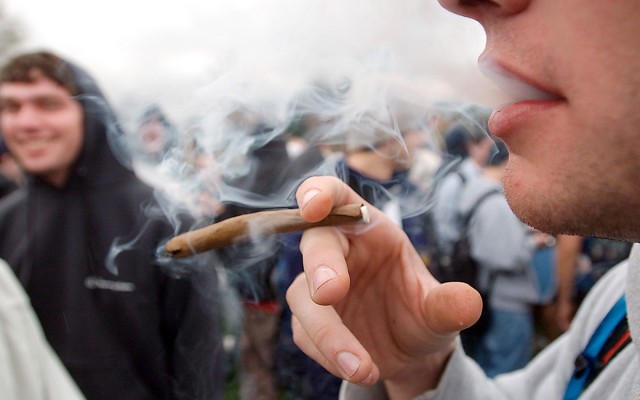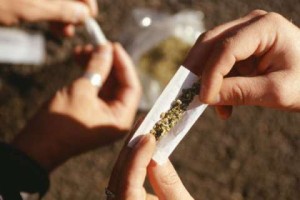 CNN recently released an article titled “Frequent teen marijuana use linked to issues later in life.” In the article, they reference a new study that explores the relationship between teen cannabis use and later life developments including high-school completion, attainment of university degree, cannabis dependence, use of other illicit drugs, suicide attempt, depression and welfare dependence.
CNN recently released an article titled “Frequent teen marijuana use linked to issues later in life.” In the article, they reference a new study that explores the relationship between teen cannabis use and later life developments including high-school completion, attainment of university degree, cannabis dependence, use of other illicit drugs, suicide attempt, depression and welfare dependence.
Now before I even begin discussing the problems with the article itself, I’d like to note that CNN could not even be bothered to link to the correct study in the article. At the time this article was written, CNN linked its readers to this study about the effect of statin use on the development of microvascular disease in patients with diabetes. I found myself looking up ‘statin’ to verify whether or not it was a scientific name for cannabis; I hadn’t heard of before. As it turns out, Statin is a drug used to lower cholesterol levels, not the kind used by slacking teen high school drop-outs.
CNN cited the study saying that adolescent cannabis users are “18 times more likely to become dependent on marijuana, seven times more likely to attempt suicide, and eight times more likely to use other illegal drugs in the future.” Specifically, the researchers say that those who use cannabis daily are the most likely to experience the later risk factors investigated by the study.
The data of the study, as far as I can tell, is accurate. However, I need to stress that these findings are not causation, there could be any number of lurking factors which might explain the relationship between cannabis use and later developments in life. For example, maybe the kind of person who would take up smoking cannabis daily early in their adolescence is the same kind of person who would already have trouble paying attention in school and sticking with high school and completing graduation.
 The CNN article does well to note this fact, quoting Mason Tvert, communications director with the Marijuana Policy Project, who explains, “The article expressly states that there remains no evidence that using marijuana causes depression, suicide or dropping out of school, it simply shows that teens who are prone to developing these problems are more likely to have used marijuana.” So even the researchers behind the study itself fully recognize that their study proves literally nothing, as far as indicating cannabis use as the cause of the negative life developments investigated.
The CNN article does well to note this fact, quoting Mason Tvert, communications director with the Marijuana Policy Project, who explains, “The article expressly states that there remains no evidence that using marijuana causes depression, suicide or dropping out of school, it simply shows that teens who are prone to developing these problems are more likely to have used marijuana.” So even the researchers behind the study itself fully recognize that their study proves literally nothing, as far as indicating cannabis use as the cause of the negative life developments investigated.
To illustrate the point in another way, the earliest cohort of the three studies used in the meta-analysis were born in 1977. Back in that era, there was even less accurate information available on cannabis and it was far more stigmatized than it is today. It could be that the people willing to use cannabis back then were already more likely to engage in risky behavior and so were more likely to have the negative developmental outcomes indicated in the study.
The researchers did their best using advanced statistical computations to adjust for such confounding factors, including childhood cognitive and behavior problems, substance use, mental health and demographics. However, the data in their study was compiled from three past studies, which all measured these various confounding factors in different ways, which is problematic for consistent and accurate statistical analysis. The authors of the study fully admit this themselves.
So despite the attention grabbing headline of CNN’s article, it would seem that cannabis risk research is hazy at best, especially when one considers the difficulty of getting federal approval and access to federally sanctioned supplies of the cannabis for accurate research designs. There is still much scientific, empirical investigation to be done before we can establish causal links between adolescent cannabis use and later life developments.









